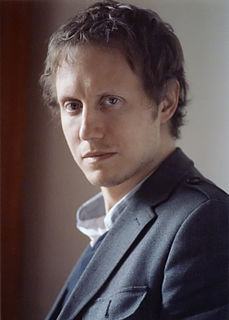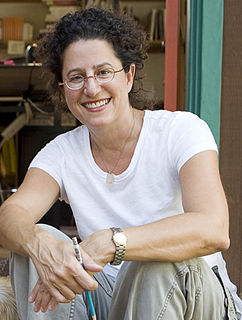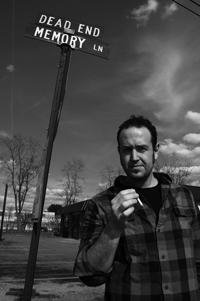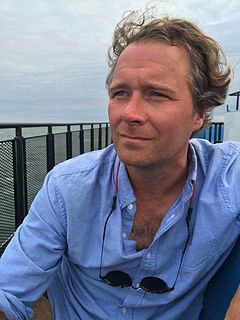A Quote by Stephen Dunn
I don't let a poem go into the world unless I feel that I've transformed the experience in some way. Even poems I've written in the past that appear very personal often are fictions of the personal, which nevertheless reveal concerns of mine. I've always thought of my first-person speaker as an amalgam of selves, maybe of other people's experiences as well.
Related Quotes
If the motive of writing is for some people a kind of exercise in dirty laundry, that's one thing. I've always thought of my poems as meant to be overheard, as I think all of these poems are. It seems to me if you get experience right, even your most painful or humiliating experiences - if you get those experiences right for yourself and make discoveries as you go along and find for them some formal glue - they will be poems for others.
Sometimes all we need is only listening to an inner voice and remaining human in a very personal way. But even if it is a personal way, it's still a very valid way - maybe the most valid way. It doesn't have to be a collective experience or someone telling you what to do. The most sacred human experience can be a very personal one.
I find it interesting that people often seem to believe that authors of realistic fiction are directly translating their personal experiences into their work. The fact is that telling a story is a transformative experience. There is rarely a one-to-one translation onto the page unless you're writing memoir, and even then, memory is unreliable. I think that the best books feel emotionally true, and that truth has to be rooted in real-world experience.
I know that in a poem, even when the speaker is speaking from the poet's experience, there's always something that's borrowed, some authority that sits outside of the poet that the poem has claimed. There's a dramatic pitch that makes the speaker capable of saying something more courageous or stranger or simply other than what the poet would be able to say.
When I personally feel like I belong to the world, it is because I am with people I love in places I love. So I decided that would be my solution. I set All the World in a place I love - the central coast region of Southern California - and populated it with people and things that I love. I stopped worrying that I wasn't representing every place, every person, every possible experience. And I hoped that through this personal expression of mine, others would find their own personal meanings as well.
I wanted to pack a lot into the lyric, but not go beyond its bounds. Some have written that I wanted to expand what the lyric could do. I just want the hugeness of experience-which includes philosophical discursiveness-to move at a rate of speed that kept it (because all within one unity of experience) emotional. Also, often, questions became the way the poems propelled themselves forward It brings the reader in as a listener to a confession[.] A poem is a private story, after all, no matter how apparently public. The reader is always overhearing a confession.
I still don't know how to express the really delicate personal stuff. People think that Plastic Ono is very personal, but there are some subtleties of emotions which I cannot seem to express in pop music, and it frustrates me. Maybe that's why I still search for other ways of expressing myself. Song writing is a limiting experience in some ways - writing down words that have to rhyme.
If you have a career like mine, which is so identified with Hollywood, with big studios and stars, you wonder if maybe you shouldn't go off and do what the world thinks of as more personal films with lesser-known people. But I think I've fooled everybody. I've made personal films all along. I just made them in another form.
People probably long for something genuinely personal in a society where the personal is often indistinguishable from the "personalized." Maybe the poetry audience member is searching for his or her own "personal space" and they expect the poet to be a sort of avatar of the private life. But that sort of representation is distasteful to me. Asking a poet to represent the personal life is, paradoxically, to turn the poet into something other than a person.
That authentic experience that happens both in the artist and in the audience you can classify as a mystical experience. You can classify it as aesthetic shock, or even a psychedelic experience. Some people seek to recreate that experience through drugs. But the other way that you can do it is through art, and through spectacle. We have those experiences when we go to rock shows, or when we listen to a piece of classical music, or read a particular poem, or see a painting.
I just think that the world of workshops - I've written a poem that is a parody of workshop talk, I've written a poem that is a kind of parody of a garrulous poet at a poetry reading who spends an inordinate amount of time explaining the poem before reading it, I've written a number of satirical poems about other poets.
It's often said that elephants are the most human of animals - there's something comical about their acquiescence, and tragic also. The long elephant poem - I was trying to write from the point of view of someone who had been seduced by the logic of his punishers and who, in a kind of awful way, could reproduce the very logic that had put him in this predicament in the first place. And maybe, in some kind of minor way, that's something I feel about myself, or maybe about all selves, that they fall in love with the thing that oppresses them.






































